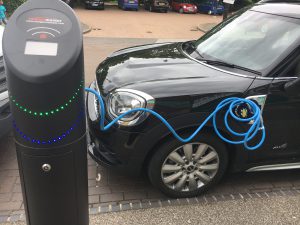Despite significant clean energy growth across the globe, the International Energy Agency (IEA) has warned that under today’s policy settings, emissions would remain high enough to increase global average temperatures to around 2.4 °C.
Bending the emissions curve onto a path towards a 1.5 °C maximum increase, the IEA’s flagship World Energy Outlook (WEO) report added, still remains possible but will be “very difficult.”
Major shifts towards renewables seen globally
Under the “phenomenal” rise in clean energy technologies across the globe, the WEO report believes that we will see a “considerable different global energy system by the end of this decade.”
This includes 10x the amount of electric vehicles (EVs) on the roads globally by 2030 under the report’s stated policies scenario (STEPS). The STEPS provides a more conservative benchmark, representing a path based on the energy and climate measures governments have put in place to date, as well as policies that are under development.
This impressive growth is attributed to the significant efforts of the EV industry globally, growing from only one in 25 cars sold being electric in 2020 to one in five in 2023.
According to data from New Automotive, the UK could achieve an 85% EV market share by 2028, if it remains steadfast in growing its EV charging network and reaching its EV targets.
Read more: Current+
It’s Time to Go Green!
If you would like to know more about Solar Panels and the PowerBanx range of home battery systems, and get a free instant quote, please complete our online form:







